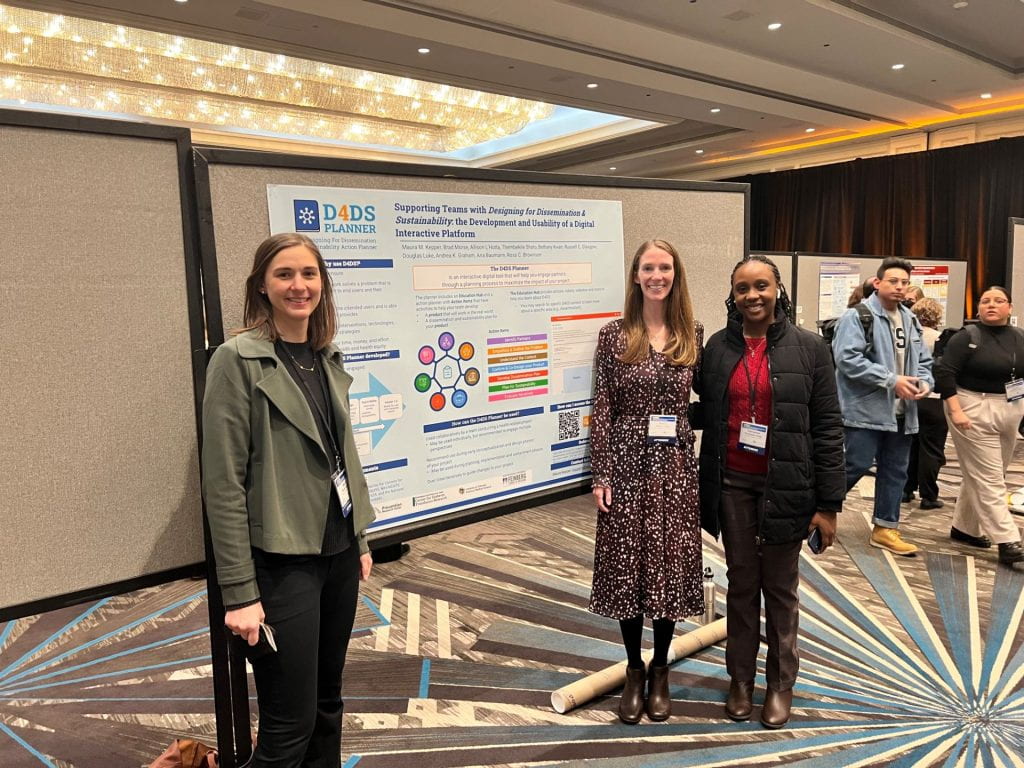The PRC’s Maura Kepper, Allison L’Hotta, Thembie Shato, and Ross Brownson, along with other collaborators, officially launched the new D4DS Planner at the 16th Annual Conference on the Science of Dissemination and Implementation in Health, held in Arlington Virginia December 10-13, 2023. The planner was a collaboration between researchers at Washington University in St. Louis, the University of Colorado and Northwestern University. This national team of experts used a participatory design process to create an interactive, people-centered tool that will help bridge the gap between research and practice.
“Our goal was to develop a tool that is meaningful to and meets the needs of a wide-range of health researchers with varying levels of dissemination and implementation science expertise.” Said Maura Kepper, Assistant Professor at the Brown School.
The use of Designing for Dissemination and Sustainability (D4DS) principles supports the development of products of research (interventions, tools, findings) that match well with the needs and context of the problem, audience and setting. The D4DS planner is an interactive digital platform that supports teams conducting health-related research in learning and applying D4DS principles and methods to their work.
The D4DS Planner has two main components: 1) the Education Hub (i.e., searchable platform with literature, videos, websites, etc.) and 2) the Action Planner (www.d4dsplanner.com). The Action Planner includes 7 interactive steps that walk users through a set of activities to generate a downloadable D4DS action plan for their project. The steps include: identifying partners, outlining the problem, understanding the context, confirming and co-designing the product, creating a dissemination and sustainability plan, and evaluating iteratively.
The tool was designed to promote collaboration and includes features such as the ability to assign team members specific tasks with a due a date and chat features to foster work both synchronously and asynchronously over time on a project. This is the first tool that supports research teams, including their community partners, in learning about and applying D4DS principles to their work. The use of this tool may increase the impact, equity and sustainment of a wide-range of research.
